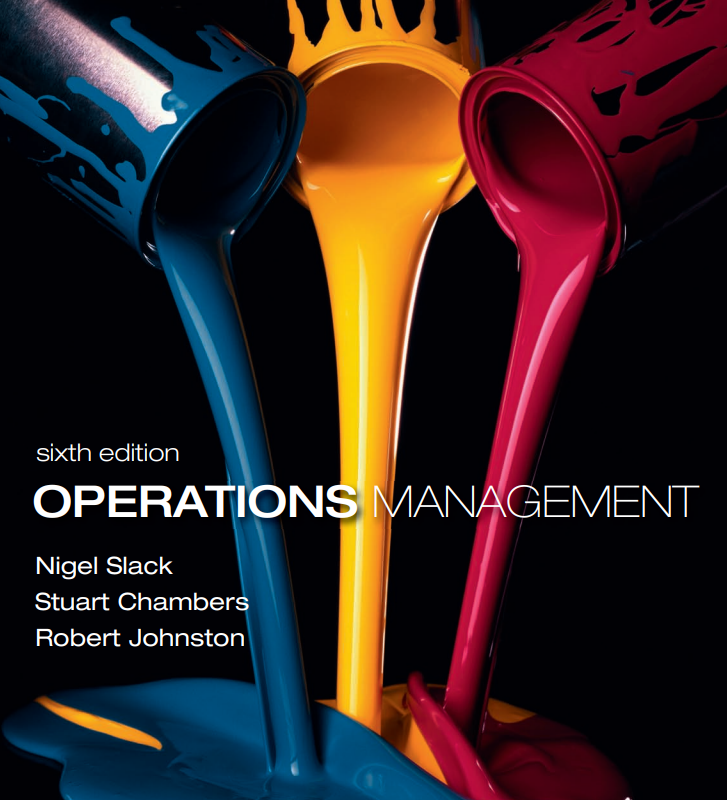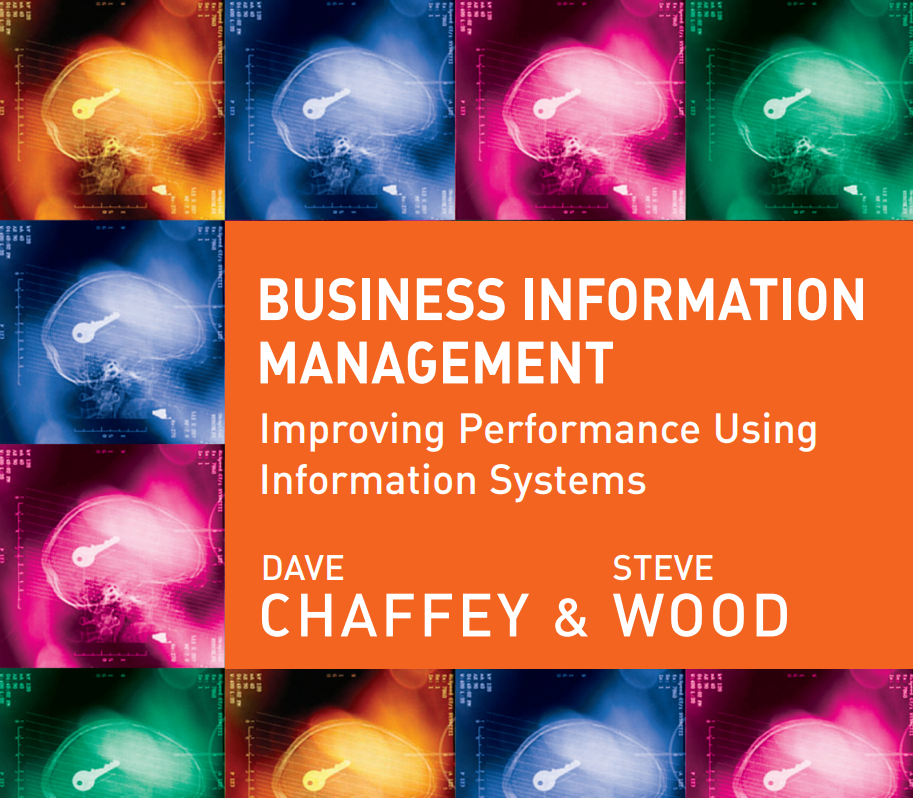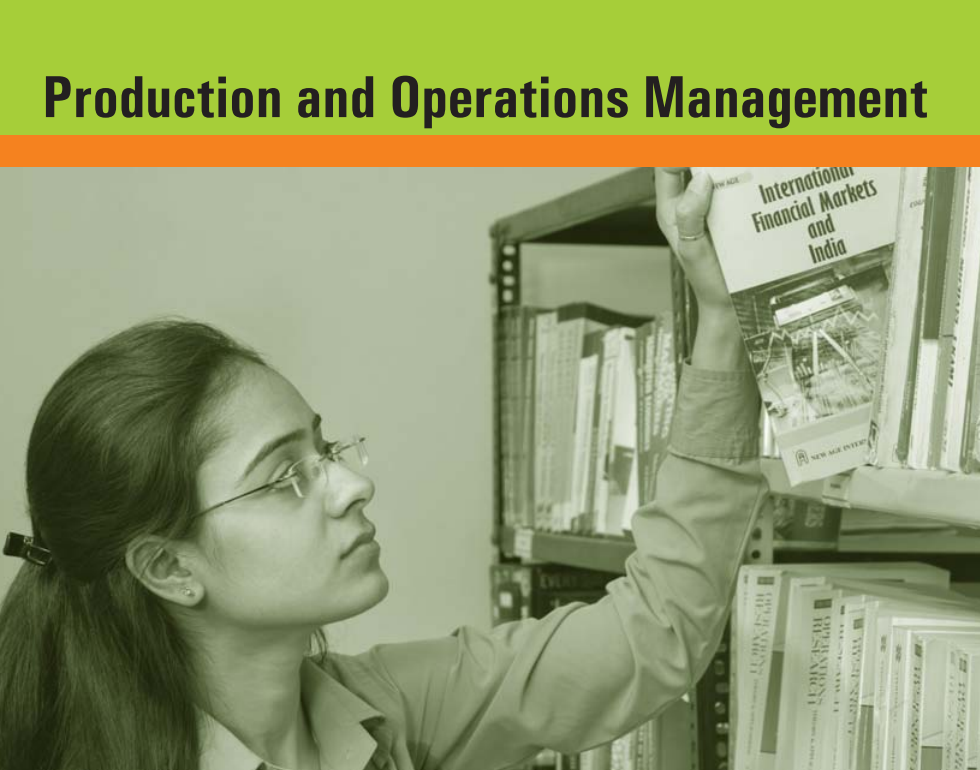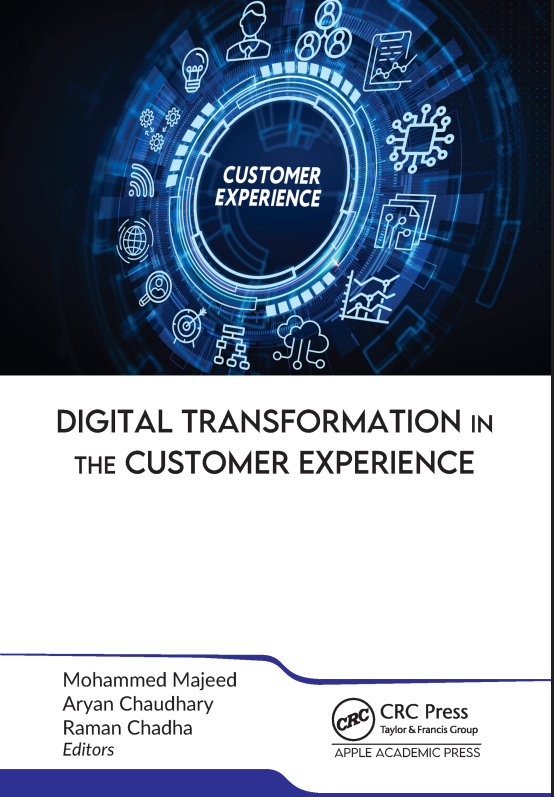FLS MANAGEMENT TRAINING PROGRAMS
OPERATIONS MANAGEMENT
OPERATIONS
MANAGEMENT
USD 549
duration : 12 weeks
Course type : Online or Physical
Frequency : 1-2 hours per week online
OR 2 hours Physical 1 session per week
Course description:
Operations Management is important, exciting, challenging, and everywhere your
look!
Important, because it’s concerned with creating all of the products and services upon
which we depend. Exciting, because it’s at the centre of so many of the changes affecting
the world of business. Challenging, because the solutions that we find need to work
globally and responsibly within society and the environment. And everywhere, because
every service and product that you use – the cereal you eat at breakfast, the chair you sit
on, and the radio station you listen to while you eat – is the result of an operation or
process.
Our aim in writing Operations Management is to give you a comprehensive understanding
of the issues and techniques of operations management, and to help you get a great final
result in your course. Here’s how you might make the most of the text:
● Get ahead with the latest developments – from the up-to-the-minute Operations in
practice features in every chapter to the focus on corporate social responsibility in the
final chapter – these put you at the cutting edge.
● Use the Worked examples and Problems and applications to improve your use of key
quantitative and qualitative techniques, and work your way to better grades in your
assignments and exams.
● Follow up on the recommended readings at the end of each chapter. They’re specially
selected to enhance your learning and give you an edge in your course work.
● check and reinforce your understanding of key concepts using self-assessment
questions, audio summaries, animations video clips and more;
● practice your problem-solving with feedback, guided solutions and a limitless supply of
questions!
We want Operations Management to give you what you need: a comprehensive view of the
subject, an ambition to put that into practice, and – of course – success in your
studies. So, read on and good luck!
Duration : 12 weeks
Course type : Online or Physical
Frequency : 1-2 hours per week online
OR 2 hours Physical 1
session per week
FLS MANAGEMENT TRAINING PROGRAMS
BUSINESS INFORMATION MANAGEMENT
Course description :
Information volumes are increasing relentlessly. Estimates from researchers at the School of Information Management and Systems, University of California,
Berkeley (Lyman and Varian, 2003) suggest an increase of 30 per cent per year. The
volume of new information created each year is staggering, the same researchers
estimate that 800 megabytes of recorded information is produced for each man,
woman and child on Earth. In a more understandable context it would take about
30 feet of books to store the equivalent information for each person on paper.
As information volumes increase, so do the challenges of managing the information and trying to find value in it. Some of the challenges of managing such
huge volumes of information, increasing at this rate, are:
■ Relevancy – How do we find information relevant to our decisions?
■ Accessibility – How do organizations make relevant information available to
employees and business partners through computer applications, web and email? How is the knowledge used to apply information captured and shared
between employees?
■ Legality – How do organizations ensure they are using customer, employee and
market information in accordance with legal and ethical standards?
■ Security – How do we protect this information from accidental or deliberate
threats?
■ Value – How can this information help organizations reach their business
objectives?
Duration : 12 weeks
Course type : Online or Physical
Frequency : 1-2 hours per week online
OR 2 hours Physical 1
session per week
FLS MANAGEMENT TRAINING PROGRAMS
PRODUCTION AND OPERATIONS
MANAGEMENT
Course description :
This unit introduces the students with the basic concepts of the production and operation
functions. Among different functions in any organization, production and operation function
is a vital function which does the job of value addition to products / services respectively.
Maximizing the value addition automatically results in productivity improvement.
An organization consists mainly of four functional subsystems, viz. marketing, production,
finance and human resource management. The marketing function of an organization aims to
promote its products among customers which help it to obtain sales orders. This, in turn, is
communicated to the production subsystem which is concerned with the management of
physical resources for production of an item or provision of services. This means that the
available facilities also need to be managed to meet the current market requirements. To
manufacture the product as per the specifications, the production function needs to organize
its resources (raw material, equipments labor and working capacity) according to
predetermined production plans. The finance function provides authorization and to control to
all other subsystems to utilize money more effectively through a well defined finance plan.
The human resource management function plans and provides manpower to all other
subsystems of the organization by proper recruitment and training programs. It also monitors
the performance of the employees by proper motivation for targeted results.
FLS MANAGEMENT TRAINING PROGRAMS
DIGITAL TRANSFORMATION IN THE CUSTOMER EXPERIENCE
Course description :
In response to the global competition and the desire to provide timely, valuable, accurate, and quality products and products information, organizations
Digital Transformation in the Customer Experience
have begun full integration into the digital revolution to meet the needs of the
customers and business budget (Awiagah et al., 2016). Consequently, organizations are evaluating, developing, and deploying innovative digital tools
and strategies to improve competitive and business performance (Carvelho
and Costa, 2014; Curraj, 2021). Of importance to contemporary discussions
on business performance is the concept of digitalization, which involves the
process of representing products, its features, and general business routines
in digital bits and formats (Nabieva, 2021). Digitalizing products and products features are represented on several digital platforms and tools which
significantly influence degree of business performance (Ayatollahi et al.,
2015). Several digital platforms such as social networks, electronic mailing
systems, and customized web portals have been used to reach and deliver
products and products information (Kumar et al., 2016; Nabieva, 2021).
Adopting digital technologies has emerged practices such as e-governance, e-banking, e-learning, e-communication, e-health among others
(Omotosho et al., 2019). Interestingly, scholarly discussions on digitalization
have widely focused on large firms, partly because of the high level of digital
adoption among large firms. When it comes to adopting new technology in
the field of information and communications technologies (ICT), small and
medium enterprises (SMEs) are frequently seen as laggards when compared to their larger counterparts (OECD, 2017;



